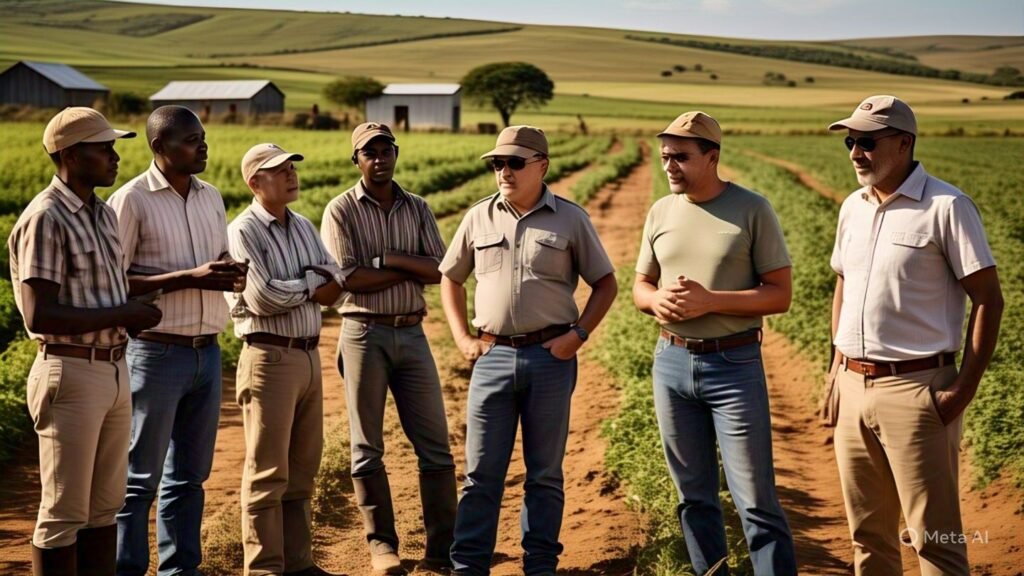Genocide Against White Farmers in South Africa,The History of Racial Inequality in South Africa
Genocide Against White Farmers in South Africa,Between 1948 and 1994, South Africa was ruled by an apartheid system that oppressed the Black majority—about 81% of the population in 2022—while granting privileges to the White minority, which made up around 7% of the population. Since the country’s first democratic election in 1994, the African National Congress, now led by President Cyril Ramaphosa, has remained in power.Genocide Against White Farmers in South Africa, Although there have been instances where White farmers were attacked or killed, evidence consistently suggests that these acts are not racially driven.A 2003 government inquiry in South Africa determined that most farm attacks were primarily motivated by robbery. Experts in South Africa have repeatedly confirmed this conclusion in recent analyses.Anthony Kaziboni, a sociologist at the University of Johannesburg, explained that farms, due to their isolated locations, are often easy targets for criminal activity.This News/Articles is Published by:Moviebox4u
“These attacks are shaped by geographical and economic factors, not by racial or political agendas,” Kaziboni stated.Kaziboni emphasized that describing these farm attacks as “genocide” is a serious distortion of reality. He added that crimes are serious but need targeted rural safety—not misinformation.
What White Farmers Say About the Attacks
Even White farmers themselves acknowledge that the attacks are largely due to their vulnerability in remote areas, not their race.

Genocide Against White Farmers in South Africa
During Donald Trump’s first term, the U.S. State Department questioned the claim of “genocide” against White farmers.
The 2020 Human Rights Report
The department noted that while some organizations alleged racial targeting, many experts linked the attacks to South Africa’s high crime rate.

South African Farmers’ Association Response
According to the Institute for Security Studies (ISS), the increase in farm attacks mirrors a general surge in violent crimes across the country. Farm-related killings accounted for just 0.2% of total murders between 2018 and 2019, a figure that remained consistent through 2024.Trump also referred to South Africa’s new land expropriation law, which aims to address racial imbalance in land ownership.The law allows land expropriation without compensation in limited cases, such as abandoned land or land not in productive use.Fair and reasonable compensation remains the legal standard.A leading South African farmers’ association clarified that no confirmed cases of forced land seizures or uncompensated expropriations have occurred.The claim of genocide against White farmers in South Africa has been widely circulated in international media, but detailed investigations and expert analyses have consistently debunked this narrative. Studies show that while farm attacks are a serious issue in South Africa, they are not racially targeted but are instead part of the country’s broader crime problem. The South African Police Service and independent security organizations have repeatedly confirmed that these crimes are motivated by robbery and not by race or political agendas. The term genocide against White farmers in South Africa misrepresents the situation and spreads misinformation that fuels unnecessary fear and division. In reality, farm attacks often result from the vulnerability of remote locations, where criminals see easier opportunities for theft and robbery. The misuse of the word “genocide” in this context not only undermines the victims but also distracts from the real, complex challenges of rural security.

Why the Term ‘Genocide Against White Farmers in South Africa’ Is Misleading
International experts, including those from human rights organizations and the United Nations, have found no credible evidence supporting the idea of an orchestrated genocide against White farmers in South Africa. The focus should instead be on addressing South Africa’s high crime rates, improving rural safety measures, and ensuring justice for all victims of violent crime—regardless of race. Claims that white farmers are being systematically targeted have been repeatedly used for political gain, particularly in Western countries where such narratives can spark controversy and influence foreign policy. By framing these attacks as purely criminal rather than racially motivated, experts encourage a fact-based approach to solving rural crime issues. The false narrative of genocide against White farmers in South Africa not only spreads fear but also risks damaging international relations and internal peace-building efforts within the country.

good job